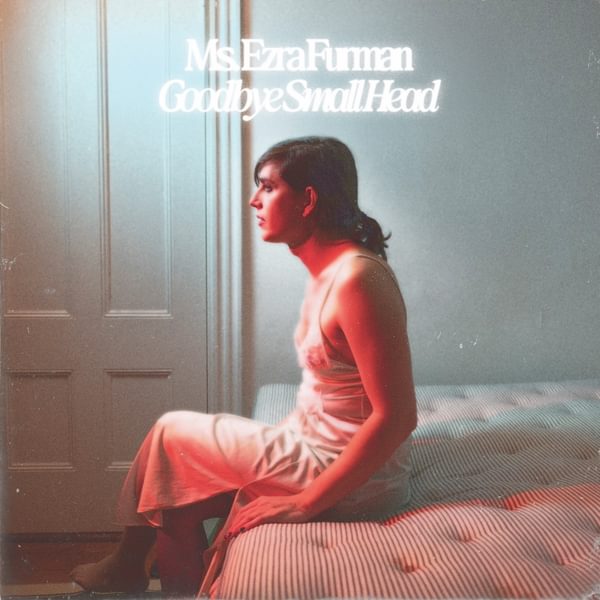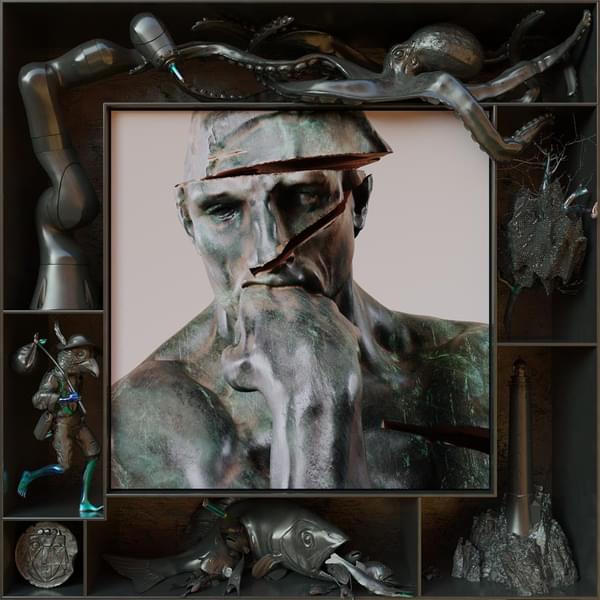
Stretching Out : Best Fit meets Gerard Love
Gerard Love is known for being one-third of one of the finest song writing triptychs of the past 20 years through his role in the enduring and wonderful Teenage Fanclub.
Through records like Bandwagonesque, Thirteen and Grand Prix to name but three of the band’s albums, Love was always the one that wrote the driving, instant pop ‘hits’ compared to Norman Blake’s more thoughtful and intricate songs, and the solid craftsmanship of Raymond McGinley. But now that the band reconvene to make music less often – just two albums since 2005 – Love has turned his attention to another project, Lightships. Debut record Electric Cables is probably the dream album for Fannies fans that always wanted a record of Gerard Love-penned tracks, and is a great example of all that’s good about Love and his writing. Yet it’s something quite different to a Teenage Fanclub album, being a mellow mood piece that pulls back on the guitars and focuses on other instrumentation. I caught up with Gerard in a Glasgow cafe to talk about Lightships, how the album came about and I couldn’t miss the chance to talk about Teenage Fanclub which, as it turned out, revealed some interesting truths behind the popular view of the band.
After some chat about the relative merits of Hamilton (my home town) versus Motherwell (Gerry’s home town), we get down to business. Why a record under the name Lightships rather than under his own name – is it a band or a solo project? “It’s a kind of parallel thing really, I don’t want to assign it as ‘it’s this, or it’s that’. I was definitely sure I didn’t want to release it under my own name,” admits Gerard. “The record has come out on Geographic, which is Stephen and Katrina’s label, they’re cool and they kind of understand me and know what makes me tick and they probably didn’t expect me to release it under my own name…some of the people in London though I kind of had to explain myself to, you know?” And it seems that Gerard is happy with the name Lightships: “Using simple terms, I saw the Lightships posters up on Byres Road and I was really taken aback by it, and if I’d seen my name on it I’d kind of be appalled by it! When you do what you do, you’re not really you. 100% of the time I’m Gerard Love, or Gerry Love…. your name is the good, bad and ugly of your life but when you’re doing music you always try and make it the perfect example of what can be achieved by me or anyone else when they create what they create. Although some of my favourite music has been created by people using their own name, Lightships is a kind of curtain between the real me, and the ‘me’ that’s doing the music. I like the mystery of the nom-de-plume!”
I ask Gerard about the selection of the name Lightships, and what it represents. “I went through a period of thinking of what I wanted to call it,” he begins, “and it kind of just appeared in my brain! I dunno if I’d been reading something about lighthouses, and I thought there must have been a band called that already. But I looked on MySpace, and then I saw a few lightships.com but they were all promotional companies… but I just like the idea of lighthouses, and the lightship is just a more dangerous example of that.” Are the songs on the record songs that Gerard’s had for a while, and or were they ever intended for a Teenage Fanclub record? “It goes back a long way,” he reveals. “It was suggested to me probably late 2007, and I started thinking about making an LP. The songs were always intended for Lightships, the dimensions of them are quite old – well, the backing tracks – and I started working on them when I had time after a Teenage Fanclub tour to get lyrics and definitive melodies…and it was 2010 when they became defined.” That’s quite a long time to get from the idea to the record. “Well when I count up the time in studio over three or four years, it’s actually only about 30 days! When you’re younger you’re maybe more dedicated to one thing and pour yourself into that…but now I’ve got more responsibilities, even musical responsibilities when it comes to people I know and work with. It just takes more time and I need to switch off and do my normal everyday thing, like everyone does I suppose. So, yeah, they’re certainly quite old but they feel like new deliveries.”
I’m intrigued as to why Lightships has appeared now, given that Teenage Fanclub reconvenes on a less regular basis than in the past, and I ask if it’s true that Stephen and Katrina from The Pastels encouraged him to take this step. “Yeah, they’re good friends and I’ve been involved in The Pastels for while now”, says Gerry. “They’ve been very supportive of a lot of bands through Geographic and Monorail [a record store/cafe, run in part by Stephen]. Mono in particular is a great addition to the Glasgow scene… but I’ve been good friends with Stephen for a long time, and a while ago back in the 1990s when Mono first started he suggested a solo record.” And did he not take him up on the offer then? “I was definitely flattered by it, but I knew it wasn’t the right time for it, it wasn’t the right time for me and I might not have been confident enough to go out on my own at that point. Plus, Teenage Fanclub was quite a big thing at that time; we were still on the up-and-up. I think that was 1996 or 1997, around the Grand Prix time. We were still unexplored, we still had potential and I didn’t know what was going to happen. Now… it’s more predictable!” So it’s easier to do things outside the band now? “I think Teenage Fanclub has become defined as a pastime… and I think that comes after time. It’s been a hell of a long time; when you think about the greats, the Beatles was ten years and even if you think about from the start of the Beatles until the end of John Lennon’s life it’s just a 20 year period, and when you’re young you think of them as being around forever. Once you go beyond that – Rolling Stones excepted – it’s kind of unusual… so we only feel like we have to work every three or four years.” Does that mean basically when it feels right? “Yeah, it’s a natural thing,” he agrees. “I think if we were on a record label there’d be pressure, but if we’re the record company then we can chill out, and we all do other things…and it’s good to do other things in your life. You can choose to stay at home rather than be on the road.”
The conversation drifts briefly away from Lightships at this point, but Gerard is happy to talk about TFC and life on the road with the band. I mention that they’ve been touring for the best part of 20 years, and back in 1991 Bandwagonesque was voted Spin magazine’s album of the year, so the States around that time must have been a thrill for them all. Gerard, though, clears up a few misconceptions about that whole period: “Ah well, the story of that is a bit more straightforward. It’s just the fact that the editor of Spin was the drummer from Orange Juice, Steven Daly! We were making good headway at the time… and it was good to travel. But I do prefer road travel rather than flying to places like Japan or America… Australia would be even worse!”
Returning to Electric Cables, it is obvious straight away – well, if you’ve listened to Teenage Fanclub – that this is a Gerard Love record. The vocals are instantly recognisable as his, yet the songs take on a more laid-back feel that we might be used to from the man who wrote ‘Sparky’s Dream’, ‘Radio’ and ‘Everything Flows’; granted some of these were written when Love was a fired-up young man, but even recent TFC albums identify him as the writer of upbeat pop songs…so what’s behind the tracks here? “I think maybe I listen to more and more music as I matured and got older; I listened to slower stuff”, he says. “Things like Scott Walker or Fred Neil from way back, or Palace and Bill Callahan, and I always really enjoyed that stuff although I could never see it being part of a Fanclub record. When I wrote the songs you mentioned, I was still in my twenties and we were still on the up-and-up. But I do like a lot of ‘mood’ music, and I’m not saying that’s what I was trying to do but I was looking for something softer and gentler. And I think part of that was I knew I was making a record for Geographic and trying to keep to their aesthetic. It’s an admirable thing running that label in the way they do, and I guess I wanted to have a ‘tone’ running through it and respect that. It’s a case of you’ve got to go that place rather than the record fitting in with your life. I mean, A Catholic Education has a tone to it, albeit more exciting as it came from people who were 18,19,20…but yeah I did get the feeling this was going to be a definitive suite of songs with a certain tone.” He also reveals that the songs he writes for Teenage Fanclub came from a love of how Norman Blake and Raymond McGinley approached their songwriting, right back from the days when he used to watch that duo as part of The Boy Hairdressers, and Love simply wanted to be a part of that gang.
Given that the album has been generally well-received, Gerard is now experiencing a different side to the music industry. “I didn’t expect it to have attracted as much interest” he admits. “I’ve probably not been involved with a record label like Domino since we were on Creation back in 1991, and we more or less got passed on from Creation to Columbia and then it was a case of ‘what is this? What are we supposed to do with these guys?’ and you’re left in an awkward place, but Domino takes me back; I don’t think I’ve ever seen people so enthusiastic since Creation! But I think just being on a good record label that takes music from, I dunno, Japan or San Francisco… with Creation I bought everything that was on the label, and it’s the same with Domino. I imagine the scenario if Teenage Fanclub were on Domino, then people would see that and then investigate other stuff signed to them. We knew Laurence from way back when we were signed to Fire, and he’s so passionate, it’s great to have that.”
On Electric Cables, Gerard is joined by Tom Crossley of The Pastels on flute, Belle and Sebastian’s Bob Kildea on bass and occasional Fanclub member Dave McGowan on keys and other instrumentation. Whilst Love plays guitar, he’s joined on drums by former Teenage Fanclub sticksman Brendan O’Hare. Now, O’Hare is famous around Glasgow for being a bit of a character and as well as quitting local legends, the perennially underrated Telstar Ponies. He was also – as the legend goes – kicked out of Mogwai by the rest of the band following a scuffle prompted by O’Hare’s talking through an Arab Strap gig. Allegedly. So, given the history how was it being back with Brendan in the studio? “When we parted company way back, I always thought I’d work with Brendan again – and I’m glad I did. Brendan’s fairly random; as a 21-year-old random guy it’s very charming… but when you’re 40 it’s like ‘that’s really eccentric’. He’s a great guy, but certainly not predictable!”
After discussing the songs on the record, Gerard explains that what you hear would probably never come about on a Teenage Fanclub album, as working in a band format wouldn’t have allowed him to delve deeper into the songs he wrote for Lightships, devoting more time to the feel of Electric Cables as a whole – even simple things like Tom Crossley’s flute popping up when you might be expecting a chiming guitar, which Gerard explains comes from the way in which Mercury Rev use the flute as a theme across one of their records, or the subject matter of some of the songs such as the shipyard reminiscence of ‘Muddy Rivers’. Given that some people have been pleasantly surprised by the album, I want to know if, at this stage of his career, reviews bother him much. “I think it’s really good if somebody gets it,” he explains. “Regardless of whether it’s a good review or a bad review – I’ve been involved with records that have got a glowing review, and the way they write it makes no sense – but if someone gives you a bad review and they understand what the thing is and see what you’re trying to do, I kind of like that.” Unfortunately for Love and his Fanclub cohorts, the former seems to have happened more than the latter. “It’s more interesting than someone saying ‘Oh, The Byrds, sunshine, three part harmonies… and that certainly happened for a period. The fact is Teenage Fanclub never just listened to Big Star. I listened to Big Star in 1988, and it’s not as if I never bought another record! When I bought Big Star I already had about 50 LPs… but sometimes in reviews people think that’s all you are.” I say there’s probably a template somewhere for Teenage Fanclub reviews that mention those bands, and the phrase “Glasgow’s Beach Boys”. Gerard laughs “I know! Even the Bellshill thing in reviews; people from Lanarkshire are so territorial, and I’m from Motherwell! And, I kind of like the Beach Boys but I’ve never really listened to them because I saw what it did to some people – they became completely obsessed by it and got lost in it, and I didn’t want that!”
We talk about the difference between working with a band and working solo and Gerard reveals it is tougher sometimes working without his bandmates on Lightships. “You do kind of have to self-motivate, organise entirely yourself, and it didn’t come naturally to me,” he admits. “I naturally enjoy my position as part of a team and working with other musicians – that’s why Lightships isn’t really a solo thing, because I rely on these other people. It’s still a group thing.”
As we wrap our conversation up in the busy city centre cafe, Gerard reveals that Teenage Fanclub will be back in the studio in the autumn to record some tracks for the next record. Although Norman Blake has now emigrated to Canada and the band don’t see each other socially on a regular basis, Gerry says that when they get together it still feels as natural as it did all those years ago, like nothing has changed. Does that mean that come the autumn, Lightships will have to take a back seat, and is there a future? He says that the point of making Electric Cables sound like it does was so it could be a definitive statement of the Lightship sound, opening the doors for more of the same at some time in the future on those labels. “Domino and Geographic have left it open for the story to continue, definitely, or for me to opt out. And I’m happy with that.” Given the obvious pleasure he’s had in making the album, and his desire to tour the record in some form with full instrumentation and orchestration, it seems clear that this record won’t be the only Lightships output we’ll hear.
Electric Cables is available now through Geographic/Domino.
Get the Best Fit take on the week in music direct to your inbox every Friday
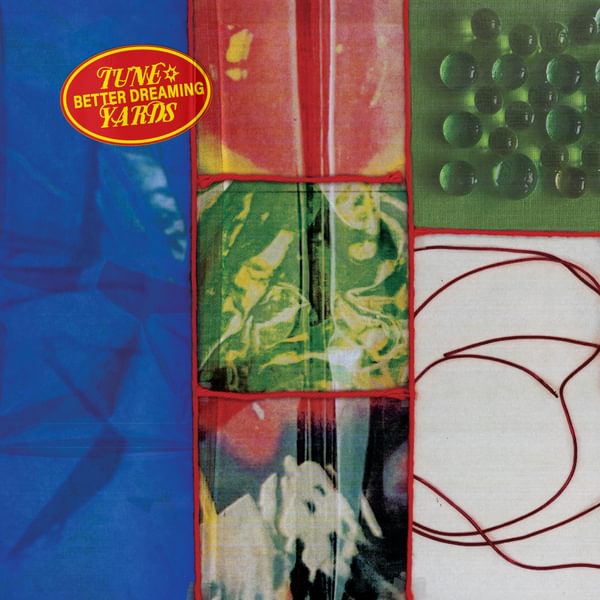
Tune-Yards
Better Dreaming
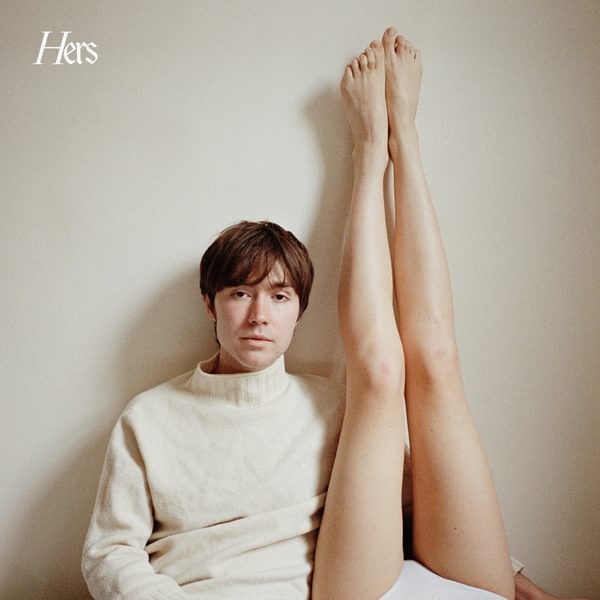
Matt Maltese
Hers
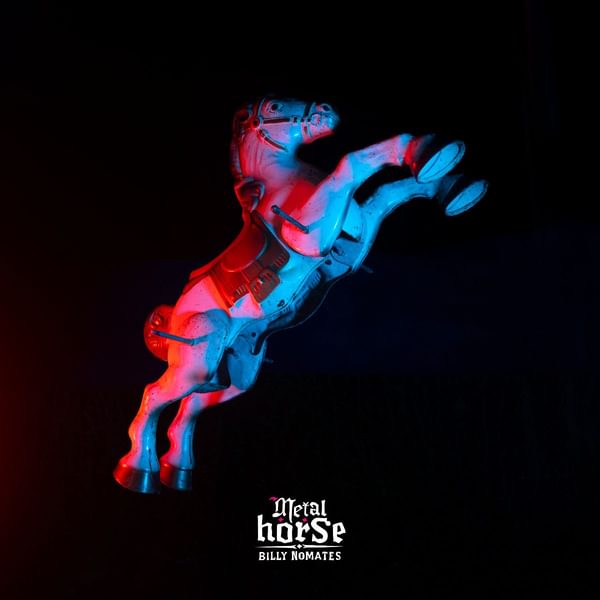
Billy Nomates
Metalhorse
